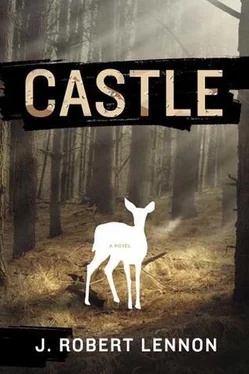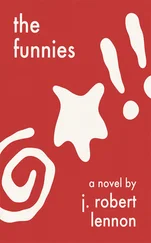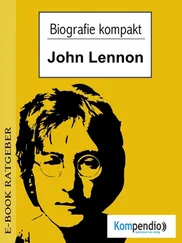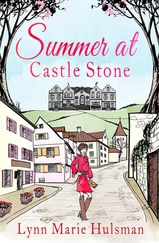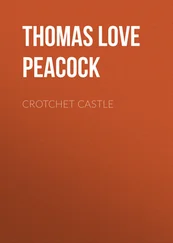I drove to the sporting goods store and found a nice, sharp hatchet, a collapsible saw, and a compact one-man tent with a waterproof rain cover. I then summoned a sales clerk — a muscular, outdoorsy-looking young man — and asked him what I would need in order to do some rock climbing.
He leaned back slightly, crossed his arms over his chest, and asked, “What kind of rock climbing?”
“Oh,” I said, “just your standard rock climbing.”
“Going up the Adirondacks?”
“No, no, just climbing locally.”
“So nothing too challenging, then,” he said.
I found something vaguely insulting in his manner — an overconfidence and imperiousness that I doubted were supported by actual life experience. To move the conversation along, I said no.
The young man led me to the climbing supplies, and instructed me to buy ropes, carabiners, a type of anchor he called a “draw,” climbing gloves, and a pair of specialized shoes. I gestured toward a small rack of smooth plastic helmets, and asked him if I shouldn’t buy one of those, too.
“Nah,” he said.
“Really?”
The young man shrugged. “Nobody uses them.”
“What protects them,” I said, “from a fall?”
“Not falling,” was his reply.
It is perhaps a fault of mine that I find it difficult to conceal negative emotions from those who have elicited them, and rather than make a futile attempt to do so, I now chose to make my feelings known directly. I placed my hands on my hips, looked the sales clerk straight in the eye, and assumed the attitude of authority to which I was accustomed.
“I regard your cavalier attitude toward climber safety to be foolish in the extreme,” I said. “I knew a young man about your age, at one time under my immediate supervision, who held similar views regarding the recommended safety equipment of his trade. He was in the thrall of his own youth and strength, and believed himself to be invincible. Any realistic assessment of the dangers he faced would have shown him the folly of this position, but he refused to make any such assessment, and the result was disaster. He was killed.”
The clerk’s smug expression slowly dissolved as I spoke, and reconfigured itself into one of affronted anger. When I was through, he wordlessly reached over my shoulder, plucked a climbing helmet from the wall, and shoved it into my supplies-laden basket. “Any other questions?” he inquired coldly.
“None.”
His mouth fell open again, as if to speak; the muscles of his face tightened, and his eyes snapped into focus. But a woman came up behind him and tapped him on the shoulder with a question about a skateboard, and he thought better of whatever it was he had been planning to say.
For my part, I calmly walked to the counter and paid.
When I emerged from the shopping plaza that housed the sporting goods store, I saw that it was already past noon. The sky had clouded over again and a light rain was falling. There would be no time for me to return to the hill, prepare my equipment, and embark upon my expedition today, and the weather was serving as a further disincentive. Thus, I was left with a “free” afternoon.
I decided that I would return to downtown Gerrysburg and treat myself to lunch and an ice cream. And indeed, it was toward downtown that I now aimed my car. When I reached Main Street, however, I did not turn left, the direction that would lead me to the town square. Rather, I turned right. The road brought me past rows of dilapidated homes and empty shops, and to the cul-de-sac that served as the termination of both Main and Jefferson — the street I grew up on. I turned onto Jefferson and slowed my vehicle, peering closely at each house, the warped and peeling clapboards, the rusted wrought-iron railings, the cracked and crumbling cement stoops. Some of the bright canvas awnings that I recalled from the days of my childhood still remained, decades out of style, grayed and stained by the years.
At the end of the third block, where Jefferson crossed Madison, the street turned to dirt. When I was a boy, it had continued for three blocks more, and ended at a small body of water officially designated Reese Pond but popularly known as “The Swamp.” Those blocks were gone now, the pond filled in. The abandoned high school stadium site was all that remained, a large area of churned-up ground surrounded by bent and crooked chain-link fence. Hillocks of excavated earth bore violent little clumps of spiny weeds. Pieces of rebar rusted in puddles, and the burned-out husk of an old car slumped in the center, its wheel rims blackened and mired in the wet ground.
I parked at the side of the road and circled around the fence on foot until I reached a flattened section. Slowly I paced out the distance from Madison, looking over my shoulder as I went. A few moments later, my boots half sunk in mud, I stood on the site of my childhood home.
It had not been a large or impressive house, 414 Jefferson. But it was here that I had formed my imagination, and developed, in solitude, the skills I would one day strengthen and refine into my professional accomplishments. It was here in the backyard, in the garden shed, that I learned how to use tools, and how to build, modify, and repair the accoutrements of childhood play. I maintained, and eventually customized, my bicycle; I built a ramp and, later, a bicycle stand, using my father’s arc welder and some scavenged aluminum pipe. It was from my father that I inherited my handiness and organizational acumen — he served for many years as the head custodian at the SUNY in Milan. My mother, meanwhile, was often tired and weak from the unhappiness that today we would call chronic depression, and left me largely to my own devices.
I developed a reputation among the neighborhood children as a solver of problems, but except for the occasional request to patch a ball or adjust a pair of skates, I had little association with them. I preferred to keep to myself. That shed was my sanctuary, both from my mother’s mood swings and from my sister’s mockery and intransigence, and there were times when I spent the entire night there. The only member of my family who ever visited me in the shed was my father, and his interactions with me there were only, as far as I could tell, coincidental to his real aim of retrieving a hammer or other tool from the elaborate and useful pegboard rack I had made.
One side of the shed had been taken up by deep, painted pine shelves, and I had left this area entirely to my father’s possessions. Most of these were magazines — back issues of handyman and do-it-yourself publications, and (I eventually discovered) a small cache of pornography, about which he seemed to have entirely forgotten. There was, however, one curious item shoved into a shadowy corner of the shelves: a handmade hardwood box about the size of a large dictionary. The box was held shut by a heavy latch with a lock on it. I was curious about this box, of course, and attempted many times to figure out what it held. It was rather heavy and solid-feeling, and it made no sound when shaken; the hinges, latch, and lock were extremely sturdy and well fitted. The only way into it would have been to break it, and my curiosity was never so great as to drive me to that extreme. Every now and then my father would enter the shed — he never knocked, as he rightfully regarded the shed as his, and my tenancy a condition of his generosity and good will — and remove the box from the shelf, and at these times I would always study his face for clues to what was inside. It was almost always in the evening when he came to take the box, and usually when my mother was asleep and my sister out somewhere, carousing. He would always return it within the hour.
Over the course of my childhood, I must have spoken with my father many, many times. But these exchanges are vague in my memory, his deep voice little more than a smear of sound. Instead what I recall is his silent presence, and my own reciprocal silence. I would not call it companionable, but neither would I refer to it as tense; our closeness was never deliberate, though we made no effort to avoid one another. But neither did we entirely ignore each other. We were like two discrete parts of a personality, taking up residence in the same brain — our proximity was unavoidable but we had little to say.
Читать дальше
